Electronic music is undeniably and irrevocably woven into the fabric of Berlin. The city where a universal appreciation for music created a progressive attitude on the dance floor. Berlin encourages creativity and self expression in inclusive environments and cherishes its recreational spaces in all their unique forms.
At times it has seemed the city’s club culture is almost untouchable, with the local government playing its part to protect Berlin’s iconic clubs rather than attempting to eradicate them. In 2016 Berghain was appointed a place of cultural importance and 2018 saw the government put €1 million towards soundproofing venues to reduce noise complaints. But as gentrification has continued to stifle the rest of Europe’s underground music scene, causing closures of well established clubs across the board, it was almost inevitable that Berlin’s club culture would suffer too.
With the proposed extension of Highway A100, Berlin faces closures of three of its key clubs – Wilde Renate, Else and ://about blank. And speculations of further damaging redevelopments are constantly emerging.
But Berlin is a capital with a resilient spirit. The fight to preserve the city’s beloved clubs is far from over.
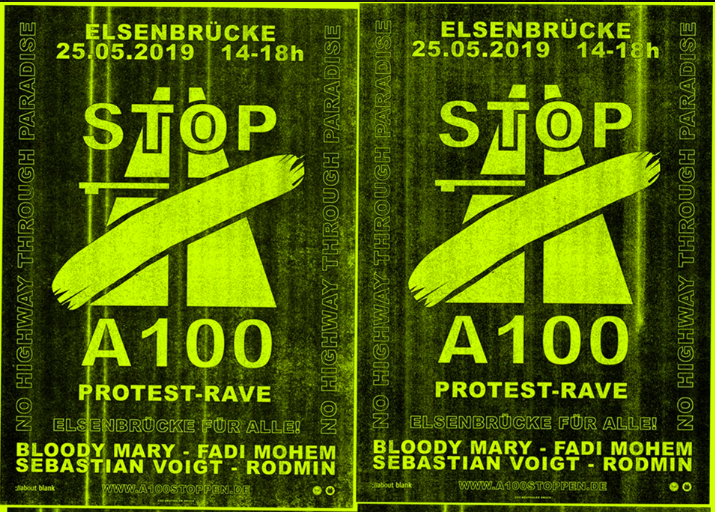
Meet the interviewees:
Lutz Leichsenring
An executive member of the Clubcommission Berlin and the Night Embassy. Lutz is a community activist and focuses on protecting creative communities, including Berlin’s underground club scene.
Laurine
A member of Berlin based collective and record label Slow Life. Laurine has been a resident of Berlin for ten years and is a frequent face behind the decks at many of the city’s finest clubs.
Marco Pellegrino
The man behind Analogcut. Marco provides vinyl dub plates and masters tracks for many of Berlin’s well respected DJs and producers, as well as DJing under the moniker ANCUT.
Karim Molyneux-Berry
Public relations manager for two of the proposed club closures – Else and Wilde Renate. Karim also runs his own independent electronic music PR agency, xander.
We’ve seen a similar fate for many clubs across Europe in recent years. Do you think the loss of three key clubs in Berlin will result in the opening of new spaces? Or are we more likely to see a decline in the variety of nightlife available in the city?
Karim: Like most things, the end never really means the end. I don’t see all the creatives and industry makers suddenly moving to Porto or becoming baristas. Crews are likely to set up new projects and are probably already working them. Let’s not forget before Berghain was Ostgut, and her offspring has definitely made a name for itself.
Laurine: I try to stay positive. These three clubs are historical and a big part of the Berlin scene. If the closings do happen, I believe the owners will find other solutions, even if it isn’t easy.
Lutz: Clubs are contributing a lot to the city society culturally, socially and economically. We are aware of more than 20 clubs that are in a very precarious situation right now. That’s why we are working closely with Berlin’s Senate for Culture to provide space on city properties such as Alte Münze or Tempelhof Flughafen. We are also in a dialogue with some real estate companies that are not into profit maximisation that might integrate music venues into their property developments. But we’re facing a decline of music venues in the next few years if we don’t get the necessary financial resources and supportive policies.
Do you think a collective effort from the residents of Berlin to continue protesting against the highway could have an effect on the decision to go ahead with its construction?
Lutz: Yes. There is already a rethink happening and the majority of parties are refusing the extension of the highway A100. Although the ongoing renovation of the Else bridge is still a threat to Wilde Renate club.
Karim: It may, but in the end the projects are being done by the state for the overall good of ‘all’ Berliners. We may not agree with the projects but in the end the power seldom lies with the people unless it’s in the government’s interest.
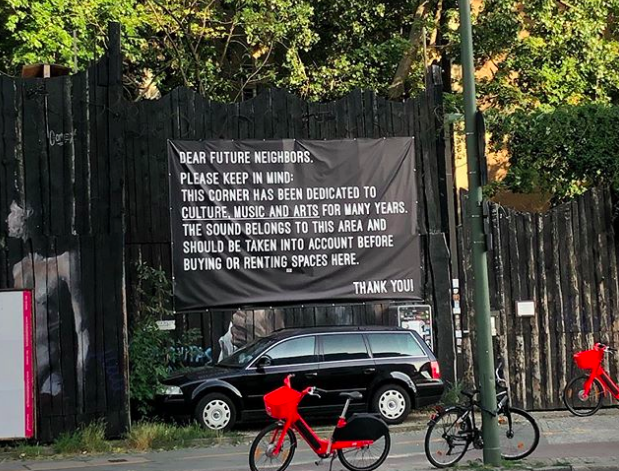
://about blank and Wilde Renate host some of the city’s most forward-thinking LGBTQ+ and fetish parties, including Buttons and House of Red Doors. Do you think without these spaces parties like this would be able to continue to flourish elsewhere?
Lutz: These clubs are important institutions of club culture and it would be a big loss that would be hard to replace.
Karim: Well Pornceptual is at Alte Münze. I don’t think the actual location in the end is what makes the party. House of Red Doors fits Renate perfectly with all her little rooms, but in the end it’s the people and the crews that make the vibe. If we were all to get up and move we would carry that with us. I guess in the end it’s important to realise: all palaces are temporary palaces, a phrase I learnt when Stattbad closed in 2015.
Marco: Obviously it will be hard to relocate all the parties to other clubs, since most of them are overbooked already, so probably the smallest will struggle to survive. But in most cases these were the party crews that made the clubs well-known, so i am confident that the more established parties will be able to move to other venues with their own crowd.
Berlin is home to many of the world’s most highly regarded DJs and producers and is considered to be a central hub in Europe for many genres of electronic music. If we experience further gentrification and the loss of more of Berlin’s most beloved clubs, do you think we are likely to see artists leaving the city to thrive elsewhere?
Laurine: Well, in the past years other clubs have shut down because of gentrification and I personally haven’t seen this happen. Berlin is more than just clubs. It’s the vibe, the lifestyle, the people and most of all the history that made it what it is. I don’t see any other city with the potential to become the ‘new Berlin’. There are other factors though that could have a big impact, like the possibility of limiting the opening hours of clubs. That would really destroy the essence of Berlin nightlife.
Marco: I actually think this process has already started. This city can be perceived as ‘unwelcoming’ by newcomers, because of the difficulties to find rooms and jobs here. In the last couple of years I have seen more clients and friends moving back to their cities of origin than new people moving here. To be honest I perceive this as a breath of fresh air for electronic music and club culture. For years the centre of creativity was confined to a couple of big cities, while now I see a significant number of new and interesting projects emerging from small towns all over the world.
Karim: Most of the DJ world is still moving here. Basically the whole British scene moved here already. If anything it’s us furthering the gentrification of Berlin. It’s good to be aware if you are part of the problem and own it.
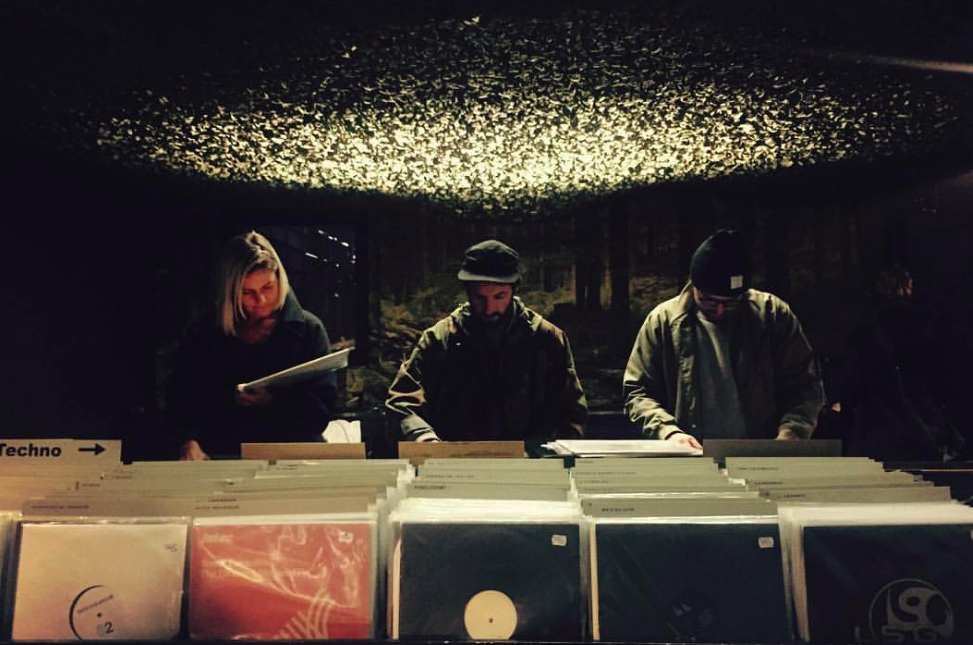
Do you think this will have a knock on effect on music-focused businesses here in Berlin, ie. record stores?
Lutz: A decline of music venues will affect the whole branch. Especially the more experimental and niche music scenes will lose ground to the more commercial and mainstream scenes.
Marco: Every step of the chain is connected, so if there will be less clubs and DJs, record stores and business related will be negatively affected as well. Shops already have to work hard to survive, because online sales are very difficult to beat in terms of prices and offer. Supporting our local record shops is crucial, they represent a place to share and create a community on a human level.
Karim: Well record stores here have a cult status – Hardwax for the monochromatic long t-shirt techno lovers and Oye for the colourful vibes of house. If anything it’s the internet and Bandcamp that will kill the record stores, not gentrification.
In an ideal world, what would Berlin’s future look like for you?
Marco: Probably as it was looking 10-20 years ago: less crowded, less expensive and free from standardisation and speculation.
Laurine: Free and cheap.
Karim: Rent to be what it was in 2013. Better restaurants, better public transport. But I love it here, so I don’t want it to change too much.
Lutz: To keep the cultural vibrancy, Berlin’s society needs to stay rebellious and uncomfortable to developments that are not contributing to the social and cultural life. As long as we keep up the solidarity towards marginalised and financially weaker groups, Berlin will stay unique.
More on Clubcommission Berlin
Facebook
More on Laurine
Facebook | Soundcloud
More on Marco Pellegrino
Facebook | Soundcloud
More on Karim Molyneux-Berry
Facebook



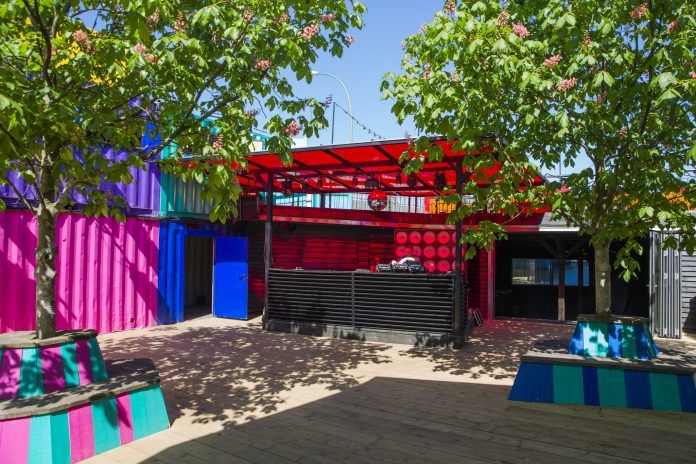
![Premiere: D1 – Laurine & Cecilio – Era Un Ravero [SL033]](https://trommelmusic.com/wp-content/uploads/2022/07/SL033-D-218x150.jpg)



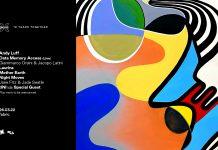

![Premiere: A2 – mrelss – Season of Reason [AMAM044]](https://trommelmusic.com/wp-content/uploads/2026/02/label_side_A-Alessio-Mereu-324x235.jpg)
![Premiere: 2 – Santon – Only a Test (Alain de Saracho Remix) [SDR012]](https://trommelmusic.com/wp-content/uploads/2026/02/Santon-Only-a-Test-EP-Artwork-Alain-de-Saracho-100x70.png)
![Free Download: Zombies in Miami – What Ya Doing [TFD128]](https://trommelmusic.com/wp-content/uploads/2026/02/photo_2026-02-12-10.38.24-e1770892750337-100x70.jpeg)
![Premiere: 1 – DAT (Italy) – Not My Plan [SENS001]](https://trommelmusic.com/wp-content/uploads/2026/02/IMG_9750-Sensazione-Stupenda-100x70.png)
![Premiere: B1 – Kolhida – Break And Escape (Cezar Lazãr Remix) [TTM003]](https://trommelmusic.com/wp-content/uploads/2026/02/IMG_2883-Aleksandr-Gocheleyshvili-100x70.png)
![Premiere: A1 – JJ Fortune – Design [LNS10]](https://trommelmusic.com/wp-content/uploads/2026/02/1188556-100x70.jpg)
![Premiere: A1 – Alexander Skancke – Saga Of Subvision [QRK015]](https://trommelmusic.com/wp-content/uploads/2026/02/photo_2026-02-03_17-31-24-100x70.jpg)

![Premiere: A1 – Light Blue File – JUNIOR [RCR002]](https://trommelmusic.com/wp-content/uploads/2026/02/RCR.002.FRONT_.LABEL-Will-Gilliland-100x70.png)
![Premiere: A2 – Lisovskyi – Just One Good Whiff [FIB004]](https://trommelmusic.com/wp-content/uploads/2026/02/B-100x70.png)